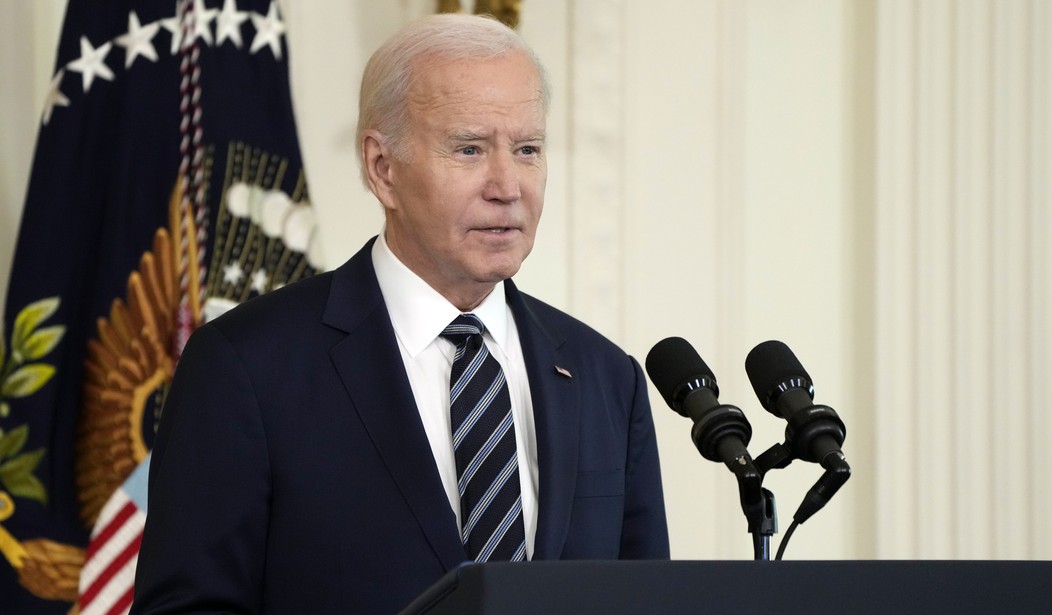As Israel continues its systematic assault on Hamas deep inside Gaza, closing in on high-ranking targets and putting the jihadist outfit's sprawling subterranean tunnel network squarely in its crosshairs, the conversation has already begun to shift away from the warfare on the ground. True, much painful fighting likely remains; true as well, no one can predict the extent to which Hezbollah or the Iranian regime itself might escalate, thereby risking a full-fledged regional conflagration.
But the war will, at some point, end. And a gap has already emerged between the positions of Prime Minister Benjamin Netanyahu and President Joe Biden when it comes to what happens in Gaza the day after Israel deems that the cancerous Hamas tumor has been sufficiently eradicated.
On the one hand, Netanyahu avowed this week that Israel "will for an indefinite period have security responsibility" in Gaza after the war. On the other hand, U.S. Secretary of State Antony Blinken, speaking on behalf of a deeply unpopular president who faces a difficult reelection next year and has endured declining Muslim-American support over the past month, stated this week that "it is clear that Israel cannot occupy Gaza" after the war.
Something has to give.
The Biden administration's specific position on Gaza after the war is downstream of its broader obstinance when it comes to the Israeli-Palestinian conflict. In a speech in Tel Aviv on Nov. 3, Blinken reiterated the Biden administration's continued support for a so-called "two-state solution" to the conflict. "Two states for two peoples," Blinken intoned -- presumably based, as it was for the Obama administration before it, on the absurd "1967 borders," which would pinch the Jewish state to 9 miles wide at its narrowest point and which former Israeli Deputy Foreign Minister Zeev Elkin once lambasted as "Auschwitz borders."
Recommended
The Biden administration, in other words, is of the opinion that the Hamas Holocaust of Oct. 7 was not a paradigm-shifting geopolitical event. Biden, Blinken and the rest of the Democratic foreign policy establishment are of the belief that the single biggest slaughter of Jews since Hitler was not a game-changer -- the sort of event that causes one to revise underlying assumptions and reassess a situation from the ground up. They believe that nothing fundamentally has actually changed; after Israel is satisfied with its work in Gaza, it will get right back to more conciliation and territorial concessions.
It is more plausible that the tooth fairy exists than the "two-state solution," as presently conceived, ever becomes reality. Indeed, the original proposed "two-state solution," following the European powers' post-World War I carving up of the Middle East, would have made all of "Mandatory Palestine" -- encompassing the entirety of the Land of Israel, "from the river to the sea" as it is now said -- a Jewish state, and would have made the Emirate of Transjordan (today, the kingdom of Jordan) a so-called "Palestinian" state. But the modern "two-state solution," which would have Gaza and the biblical heartland of Judea and Samaria form the basis for an independent "Palestinian" state, is a fantasy that should have died after Yasser Arafat's Second Intifada -- and definitely should have died after the pogrom of Oct. 7, 2023.
To continue to believe -- after all the unspeakable horrors of Oct. 7, after the reality that "Palestinian self-determination" in Gaza following Israel's unilateral disengagement in 2005 resulted in the barbaric and genocidal (but democratically elected!) rule of an Islamist reich -- in a "two-state solution" is to reveal oneself to be entirely out-of-touch to anything smacking of empirical reality. It is to reveal one's worldview as so deeply ideological, so wholly based on fanciful academic theorizing, and so completely divorced from facts on the ground, that one will have inadvertently outed himself as a complete and utter fool.
There is an alternative explanation for those still stubbornly peddling a "two-state solution." It is a darker explanation than mere incompetence or mental deficiency: a desire to simply see more Oct. 7 pogroms and more dead Jews. Indeed, many on university campuses are barely concealing their desire for precisely this.
After Oct. 7, it is clear that the 2005 disengagement from Gaza will go down as one of Israel's all-time historical mistakes, along with ceding the Temple Mount to the Jordanian waqf after the Six-Day War, the disastrous lack of preemptive action before the Yom Kippur War, and the Oslo Accords with Arafat. The world has seen what leaving Gaza to "Palestinian self-determination" results in: a jihadist entity that indiscriminately fires rockets at Israeli civilians and commits Nazi-like war crimes. The very least Israel must do is reassert operational control of Gaza's borders and security; ideally, a military occupation or formal re-annexation would be on the table.
Biden is understandably concerned about his reelection prospects next fall. There is only so much in the way of Muslim-American support he can afford to lose. Like a true cynic, he has apparently chosen to shore up that support to the exclusion of our close ally's existential security.
To find out more about Josh Hammer and read features by other Creators Syndicate writers and cartoonists, visit the Creators Syndicate website at www.creators.com.

























Join the conversation as a VIP Member